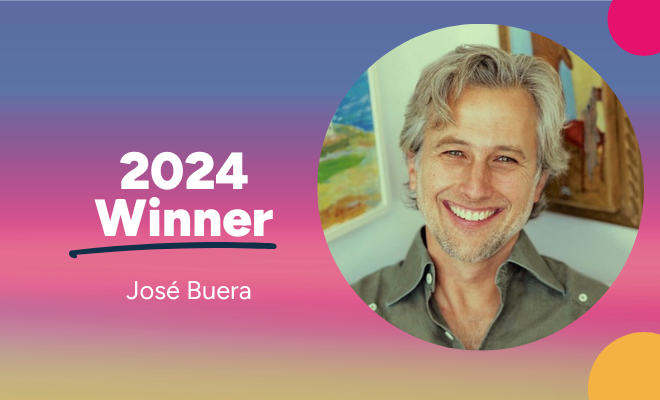Named as the winner of the Happiful Poetry Prize 2024, José Buera shares some insight into the process of writing a poem and finding community
In the winning poem of 2024, ‘Tie Breaker’, José Buera explored the experience of navigating mental health problems in a relationship. The judges were hugely impressed by the effortless use of form to immerse the reader in the scenes, which explored its topic with expert dexterity.
Here, José reflects on the steps taken to create a memorable and moving poem.
1. Why did you decide to enter the Happiful Poetry Prize?
I was drawn to the mental health theme of the Happiful Poetry Prize, especially as it is judged by a dedicated magazine.
2. Could you tell us a little about the poem you submitted?
I wrote ‘Tie Breaker’ after my fiancée, who has OCD, complained about my messiness, specifically my habit of leaving my socks on the living room floor. This is my attempt to understand how we have built our relationship while respecting the boundaries of our neurodivergences. As much as our brains fight their respective corners, in the end only us can win.
3. When writing poetry, where do you find your inspiration?
I am a very visual person who is hyper-aware of even the smallest movement around me. Most poems come to me through an image or scene that draws my attention. That image will sprout its own world and reveal a story.
4. How do you approach writing a new poem?
My poems are usually written backwards. Often the seed image is at the end of the poem, a solution to a riddle which I have to solve. I will then go for a run, stopping to write down lines on my phone as they come to me. Afterwards, I write a first draft and let it ferment over days or weeks before attempting to edit.
5. What advice would you give to aspiring poets?
Write and collate everything that comes to you and save it, whether it is a phrase, similes, metaphors, or just an interesting word or thought. Even if those fragments don’t become the genesis of a poem, they will be useful when you get stuck – sometimes years after.
Technology has made poetry workshops much more accessible. The selection is broad, with many workshops available online from the UK and abroad. They are a great way to push yourself to write, get feedback, and take risks. It will also give you access to diverse poetry communities – I met some great friends through them. (In London, both Poetry School and City Lit have great poetry seminars, workshops and courses.)
Read José’s poem ‘Tie Breaker’, and others from 2024, here.
Enter the Happiful Poetry Prize 2025


Comments